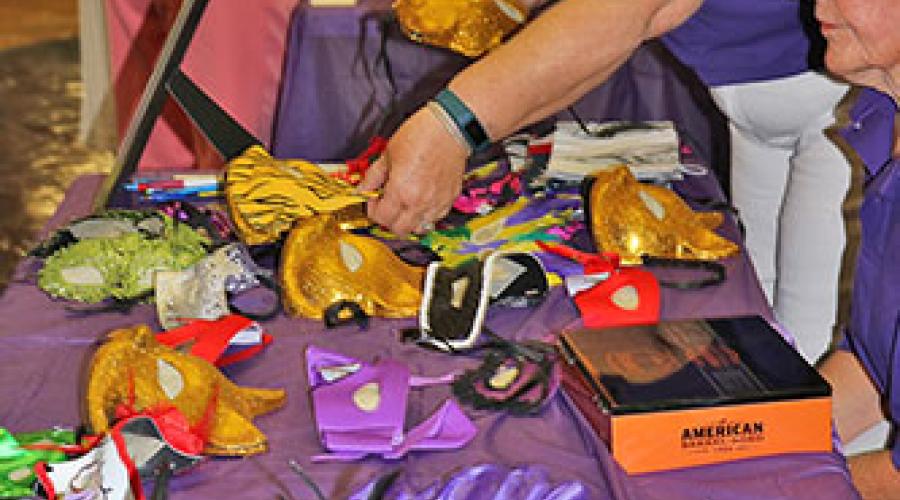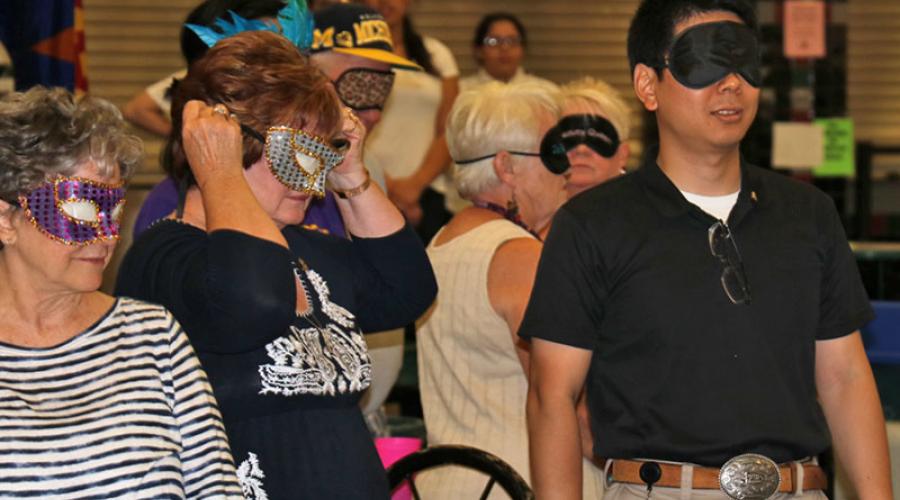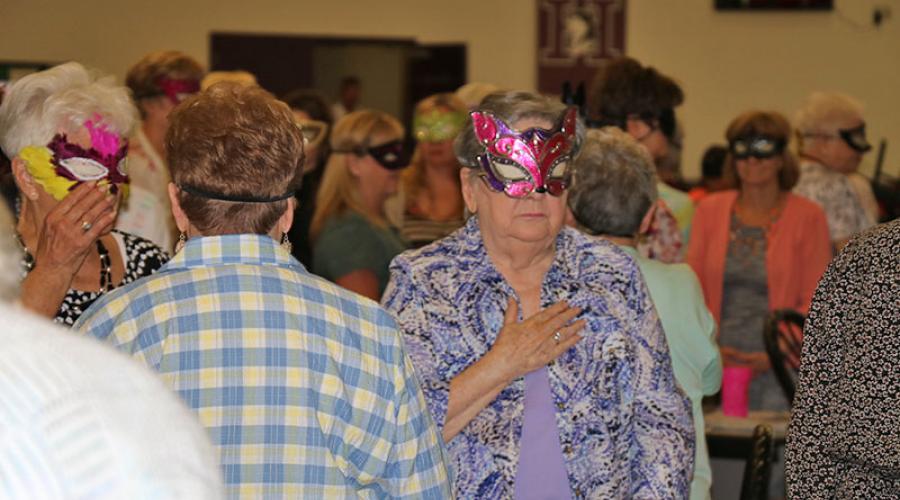Chandler Lions Club Event Provides Insight to the Sighted
The Department of Economic Security (DES) Division of Employment and Rehabilitation Services (DERS) has programs to enable clients with disabilities to complete their education, thrive in the workforce, and live as independently as possible. As the Public Information Officer for DERS, I have had the privilege of working with several of our clients who have visual impairments. I have interviewed many of them, joined them in a march to raise awareness for White Cane Safety Day, and attended the E75 Awards event which honored businesses that employ Arizonans with visual impairments. From all of these experiences, I learned about what life might be like for our clients with visual impairments. Now, I could experience it for myself.
The Chandler Lions Club hosted “Blinded by De-Light,” a unique event that had all the makings of the perfect night out on the town – dinner followed by a theatre performance. But this was not your typical night out because here, event guests were blindfolded.
The event was created to raise awareness for people living with a visual impairment. The Lions Club has been advocating for the blind since asked to do so by Hellen Keller herself, and continues to uphold its mission to find creative ways to meet the needs of communities on its 100th anniversary. The Chandler Chapter, for example, provided 187 pairs of glasses and two buddy bikes to children in need last year.
Immediately after hearing about Blinded by De-Light, curiosity impelled and I knew I wanted to participate. I was lucky to secure the club’s last available ticket. When I arrived, I was handed a masquerade mask with the eye-holes blacked-out with masking tape. Filled with nervous excitement, I found a spot at the head of one table filled with a group of ladies whom I had never met. We were instructed to put on our masks, then two Chandler Lion’s Club members who are visually impaired, Steve Welker and Bill Fullerton, took the stage to share their tips for dining in the ‘dark.’
“Your chicken will be at 6 o’clock,” said Welker, adding that mashed potatoes will be on the left, and mixed veggies on the right. Welker, who lost his vision 23 years ago when his vehicle was tragically hit by an impaired driver, said he enjoys educating his community through events like this one. Welker and Fullerton suggested we identify the seams on our cloth napkins and keep that side face-down to avoid accidently placing the dirty side on our clean clothing. They encouraged us to use our hands to feel how much food we had on our forks and to keep our cups in the same place to avoid spilling.
Their directions seemed simple enough and I felt ready to dine, or so I thought. Suddenly my mind was filled with questions – have we been served yet? Are the other tables being served? How will I know if my chicken is fully cooked? What if I spill my water? Is there salt on the table? So much was unknown without the ability to see, and it felt incredibly isolating.
I quickly realized that the control freak in me was going to have to adjust. I coached myself to stay calm and try to enjoy the experience, but my nerves were shaken every time I felt the rush of air from someone walking past me.
We must have looked like messy toddlers eating mostly with our hands, but we did it successfully and with no spills. After the meal, the play commenced. The school’s thespians preformed “The 39 Steps,” and again my nerves rattled. Performers didn’t keep to the stage but instead walked, ran, talked and shouted all around us. Nevertheless, I created a full story in my mind of what each scene and character looked like and still to this day can picture it – although, I never actually saw any of it.
Welker, Fullerton and the rest of the Chandler Lion’s Club certainly accomplished their goal of raising awareness of what it is like to have a visual impairment. Welker says that events like this one, “help people to realize that they can do more than they think they can with a disability.”
Counselors are available through the DERS’ Rehabilitation Services Administration (RSA) to help clients with disabilities, including visual impairments, live self-sufficient lives. Services are available to help clients obtain special accommodations and equipment for their homes, school and work, read braille, continue their education, gain fulfilling employment and much more.
For additional information about the DES Rehabilitation Program, visit our Rehabilitation Services Webpage.
The Lion’s Club continues to serve the visually impaired and you can help by donating your unused glasses. Visit the Lion’s Club webpage to find out how to give back to your local Lion’s Club.





